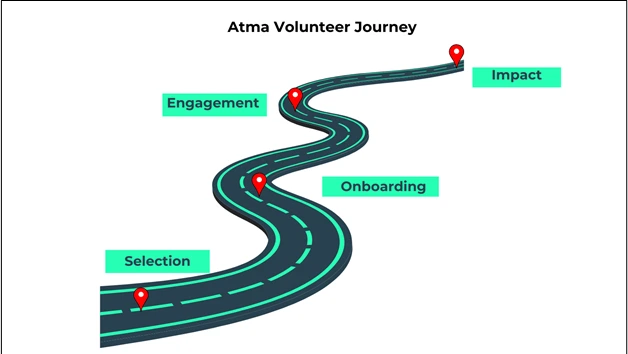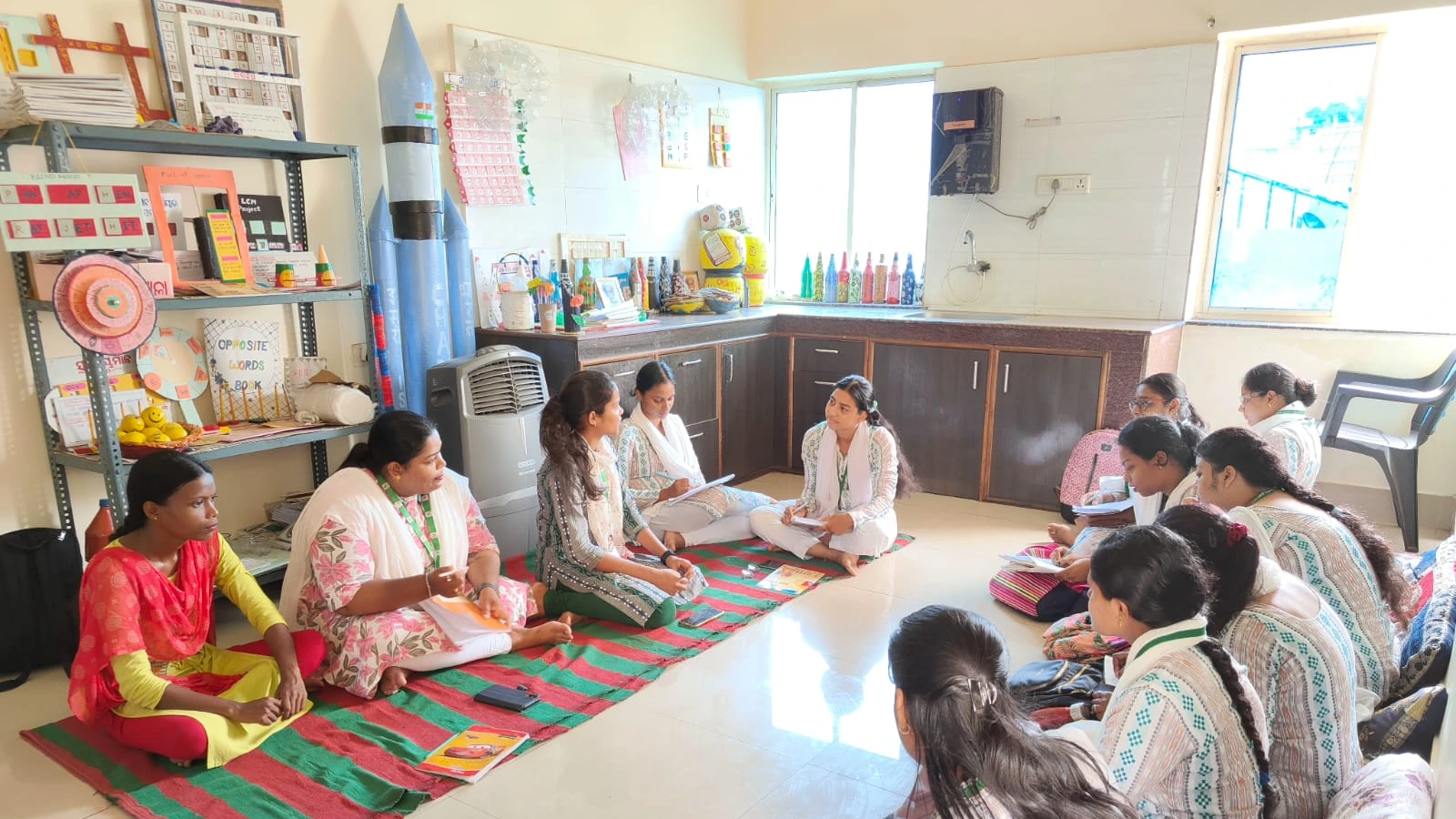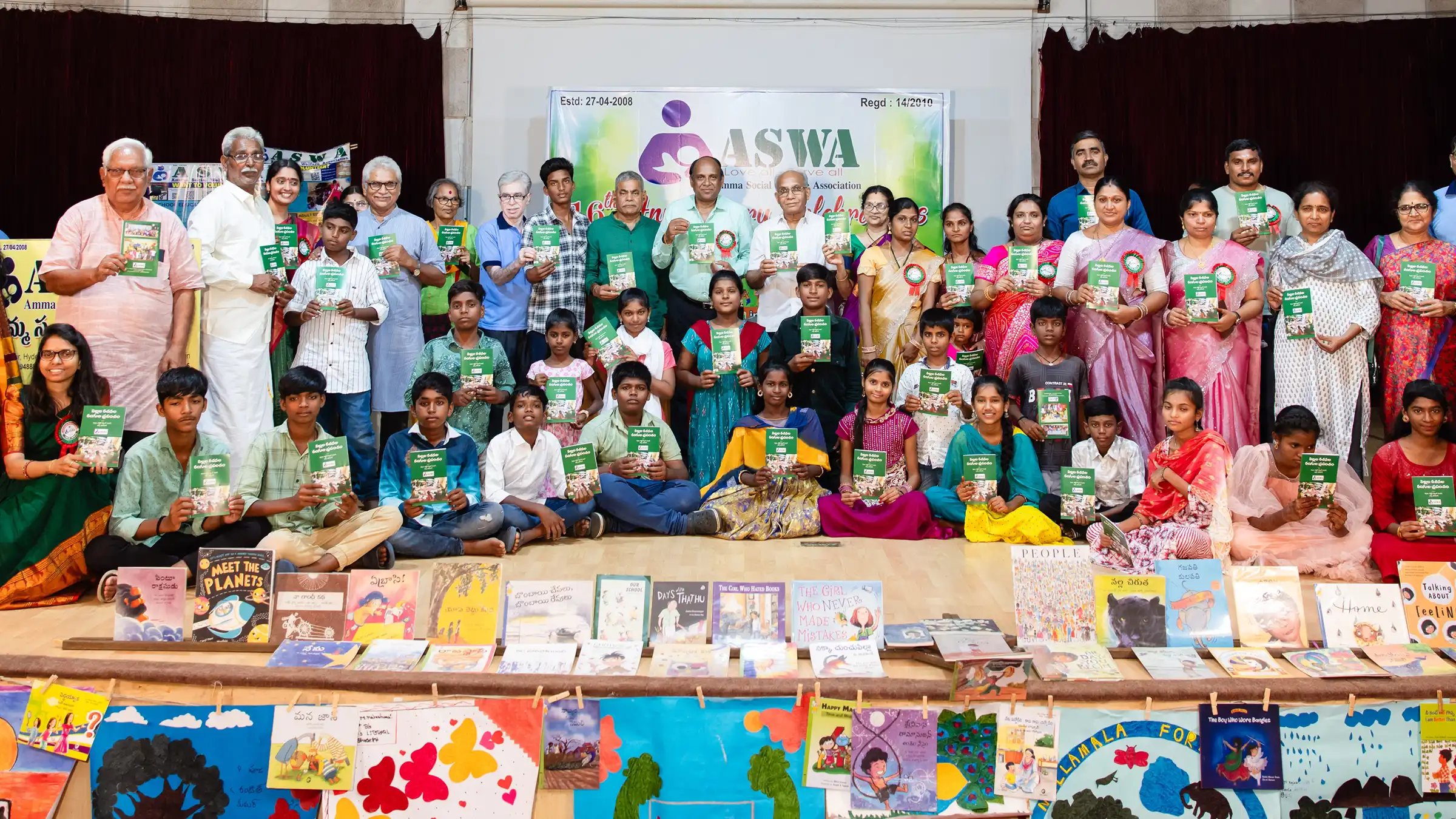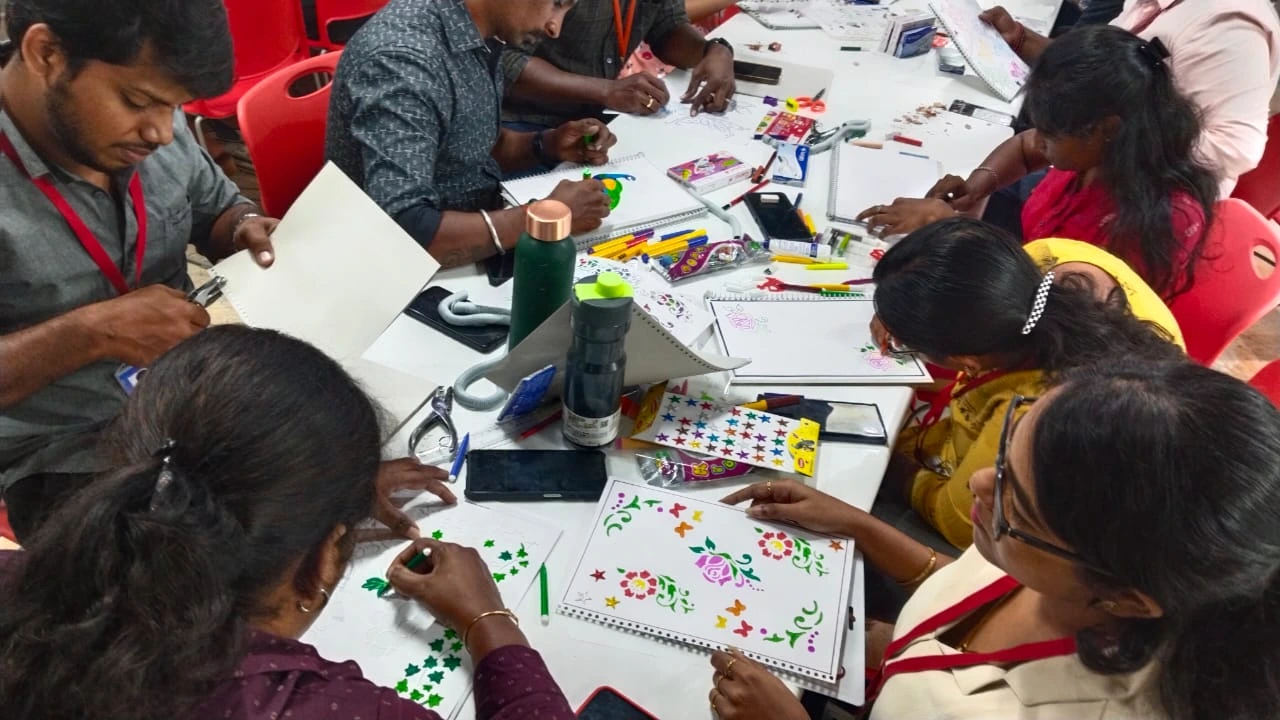Transforming NGO capacity through skilled volunteering: reflections from Atma’s journey
This article discusses the processes and challenges involved in supporting skilled volunteering for NGOs' capacity building.

In the Indian social impact space, there are over 3 million volunteers supporting 2.7 million paid staff in NGOs1. With 65% of India’s population under 35, there is an abundance of volunteers, especially in metropolitan cities2. We have also collectively witnessed an exponential growth in digital literacy post the COVID-19 pandemic, leading to a surge in virtual collaboration opportunities. Despite these factors, NGOs continue to struggle with limited staff and stretched capacities, making it difficult to integrate volunteers in a structured, strategic way that ensures purposeful outcomes for all stakeholders.
At Atma, we have worked on capacity building of over 1,000 NGOs where we witnessed firsthand how traditional volunteering models—while well-intentioned—often fall short in addressing core organizational needs. Rather, they drain the already stretched teams to accommodate the volunteers. The key is a volunteering program, which focuses on skills-based opportunities aligned with the larger mission and growth of the organization.
Atma’s approach: the volunteer experience
The Atma Volunteer Experience connects skilled professionals with NGOs to drive meaningful change. Our approach tries to ensure that volunteers are equipped, supported and able to make a lasting contribution. At its core, the program balances the needs of both volunteers and NGOs—providing NGOs with valuable expertise while offering volunteers a purposeful and rewarding engagement.
Phase 1: Selection
Building awareness about Atma and the Volunteer Program helps attract skilled professionals who may be eager to volunteer but unaware of structured opportunities to apply their expertise.
Digital presence: We share compelling stories, impact data, and testimonials on LinkedIn, and on Atma’s website and newsletters.
Partnerships: We collaborate with corporates’ CSR teams, employee engagement programs, and leadership networks like ILSS and Wipro OD&D Fellowship to reach professionals eager to contribute their expertise.
Word-of-mouth: We encourage alumni volunteers to advocate for Atma and refer peers who align with the organization’s vision. Once a potential volunteer becomes aware of Atma’s work, they begin considering whether volunteering is the right fit for them.
Application: Potential volunteers fill out a short form detailing their expertise, motivation, and preferred areas of contribution.
Screening: Applications are screened for communication skills and expertise. A screening call is then organized to get to know the potential volunteer better.
Phase 2: Onboarding
The onboarding phase equips volunteers with the necessary knowledge, tools and confidence to contribute effectively.
Orientation sessions: Volunteers attend an onboarding session covering Atma’s capacity-building approach across 10 organizational development (OD) areas, their role, and engagement expectations. It offers insight into the challenges, like limited resources, and provides valuable context for for-profit professionals. The session emphasizes co-creating solutions with NGOs and program consultants to empower them with knowledge, skills and processes.
Skill alignment: The volunteer’s expertise is matched with an NGO’s specific capacity-building needs.
Project scope and goals: Every project has clear objectives and a defined roadmap. This helps in preventing scope creep and sets realistic milestones.
Volunteer preferences: Individual preferences such as the type of organization, time commitment, and language fluency are considered to create a meaningful match.
Phase 3: Engagement
The engagement phase is where volunteers actively contribute to projects that are planned quarterly toward NGO capacity building.
Introduction call: Volunteers, NGO representatives, and Atma’s program consultant come together for an initial call to discuss project goals and expectations.
Timeline and milestones: A structured project scope and work plan outlines key deliverables, deadlines, and review checkpoints.
Regular check-in calls: Atma conducts periodic check-ins with volunteers and NGOs to monitor progress, collect feedback, and resolve challenges.
Resource sharing: Atma provides toolkits, best practices, and case studies relevant to specific projects.
Phase 4: Impact
Atma recognizes the importance of reflecting on volunteers’ experiences to ensure meaningful takeaways for both NGOs and the volunteers.
Final deliverable and handover: Volunteers complete projects and ensure that the NGOs have the necessary tools and documentation to sustain the work independently.
Impact assessment: Atma captures volunteer contributions, tracking improvements in NGO operations, and long-term impact.
Reflection by volunteers: Volunteers share insights on what they learned and how the experience contributed to their growth.
NGO perspective: Atma collects feedback to understand how the volunteer’s contributions helped address key challenges.
Skilled volunteering contributions
Skilled volunteers bring expertise that helps NGOs strengthen their systems, enhance operational efficiency, and scale impact. Their contributions extend beyond short-term support, addressing critical areas such as financial sustainability, strategic planning, and impact measurement.
For example, Dr Arvind Ilamaran, a Research Scientist at University of Chicago, collaborated with Atma’s Chief Program Officer to develop the organization’s Theory of Change for the next three years. Through structured discussions on capacity building, impact assessment, and long-term sustainability, he helped refine a strategic framework that aligns with Atma’s mission. His contribution ensures that Atma’s growth remains purposeful and data-driven, ultimately benefiting the ecosystem of NGOs it supports.
Similarly, Aditi Khatri, a social impact professional, applied her expertise in fundraising and communication to support SAMPARC, Maharashtra, in developing compelling fundraising collaterals. By helping the NGO present its mission more effectively to potential donors, she enhanced their outreach and funding opportunities. Reflecting on her experience, she shared that the process not only strengthened her professional skills but also deepened her understanding of the social impact sector. Seeing her work valued by the NGO reinforced the power of structured volunteer engagements and the lasting impact they create.
Beyond individual contributions, skilled volunteering plays a vital role in bridging resource gaps for NGOs. Many organizations struggle with limited funding and human resources to invest in organizational development. Skilled volunteers offer high-value expertise in areas such as fundraising, M&E, governance, and digital transformation—functions that are often overlooked but essential for long-term sustainability.
A well-structured skilled volunteering program also ensures continuity and sustained impact. One of the key challenges in capacity-building programs is the lack of post-program support to help organizations implement new learnings. By providing ongoing mentorship and structured engagement, volunteers help NGOs integrate new strategies into their day-to-day operations, making capacity building a sustainable and action-driven process rather than a one-time intervention.
For Atma, skilled volunteering is not just about supporting NGOs—it is a critical pillar of its own capacity-building efforts. Engaging professionals from diverse fields allows Atma to expand its reach and access specialized expertise that may not always be available in-house. It also fosters cross-sector learning, bringing in fresh perspectives that strengthen Atma’s approach to NGO support. Most importantly, structured skilled volunteering helps build a community of committed changemakers, many of whom continue to support the sector long after their initial engagement, driving long-term systemic change.
Challenges faced in skilled volunteering
While skilled volunteering has the potential to create a deep impact for NGOs, it comes with challenges. Many NGOs struggle to fully utilize volunteers. Volunteers also often find it difficult to navigate the nonprofit space.
- Expectation mismatches
The challenge: Volunteers may expect quick, tangible outcomes. However, NGOs operate in complex environments where impact requires time, adaptability, and long-term commitment.
How to overcome it:
Set clear goals: Define realistic, achievable objectives aligned with the organization’s long-term goals.
Define success upfront: Frame expectations clearly. For example, ‘creating a fundraising strategy or identify two grant opportunities’ instead of ‘improving fundraising’.
Encourage a learning mindset: Volunteers should approach the engagement with patience and flexibility.
- Volunteer retention and engagement
The challenge: Professionals juggle volunteering with demanding full-time jobs and personal responsibilities. This can sometimes result in decreased engagement over time.
How to overcome it:
Offer flexible engagement models: Structure opportunities around micro-volunteering, mentorship or phased projects.
Create meaningful connections: Volunteers stay engaged when they feel connected to the NGO’s mission.
Recognize contributions: Acknowledging volunteer efforts through testimonials or certificates boosts motivation.
- Bridging the for-profit and nonprofit gap
The challenge: Professionals from the for-profit sector often apply structured processes and outcome-driven approaches. These may not seamlessly fit into the resource-constrained and adaptive nature of nonprofits.
How to overcome it:
Provide orientation and context: Volunteers should receive an overview of the nonprofit’s work and challenges.
Encourage collaboration over consultation: Volunteers should co-develop solutions with NGOs rather than acting as external consultants. This provides them with opportunities for continuous upskilling. It also empowers them to take ownership when Atma exits their ecosystem.
Facilitate cross-sector learning: Encourage NGOs and volunteers to exchange insights for mutual learning.
The future of skilled volunteering: from short-term support to lasting impact
As millennials and Gen-Z professionals increasingly seek purpose-driven work, organizations can tap into skilled volunteering. Companies also recognize that effective volunteering programs enhance employee engagement and corporate social responsibility goals.
For NGOs, the key is intentionality. Volunteering should be integrated into the organization’s strategy with clear processes and impact measurement. Skilled volunteering doesn’t end with project completion. It extends into long-term relationships. Collecting feedback, recognizing contributions, and providing ongoing engagement opportunities strengthen these connections.
At its core, skilled volunteering is about building trust-based relationships between NGOs and professionals who believe in social impact. When designed with clear expectations and structured engagement, volunteering programs can be transformative for both NGOs and volunteers. By fostering meaningful collaborations, NGOs and skilled volunteers can drive real, lasting change—one project at a time.
Citations
Sources




No approved comments yet. Be the first to comment!